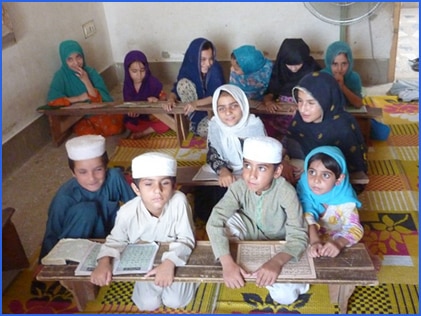
Here is further proof that feeding does not equal nourishment. The Austin nonprofit group House the Homeless surveyed the health of people experiencing homelessness and found 66% of the participants to be overweight according to BMI measurements. This is a genuine red flag, because you know these folks are not eating well, and often there is just plain nothing to eat.
Whatever their diet consists of is obviously harmful, and not just because of the weight factor. This is an unhealthy population, untreated or undertreated for a variety of chronic problems, many of which could have been prevented or alleviated by better nutrition, rather than mere belly-filling. The poor nutrition is nobody’s fault — the helping organizations do the best they can. The point is, when even the homeless people are fat, it means that somewhere along the line something has gone wrong with the food.
Recently, Childhood Obesity News traced the trajectory of Jamie Oliver, whose vision for the future of children’s health has proven more difficult to actualize than he perhaps originally expected. Things did not go so well with his obesity-fighting efforts in America. But we’re not the only ones. Oliver wrote:
Diet-related disease is the biggest killer in the United States, right now, here today. This is a global problem. It’s a catastrophe. It’s sweeping the world. England is right behind you, as usual… We need a revolution. Mexico, Australia, Germany, India, China, all have massive problems of obesity and bad health.
Previously, Childhood Obesity News talked about the major report issued in 2010 by the Robert Wood Johnson Foundation and Trust for America’s Health, which said:
While all Americans face barriers to healthy choices, these obstacles are often higher for people with lower incomes and less education, and for racial and ethnic minorities, who often have more limited access to affordable foods and safe, accessible places to be active. Where you live, learn, work and play all have a major impact on the choices you are able to make.
Many influences work to shape people into obesity — or not — and the same is true all over the world. Recently, a study was published that explored “the family-based factors associated with overweight and obesity among Pakistani primary school children,” and found significant associations. The researchers concluded:
Higher parental education, living in high-income neighborhoods and fewer siblings were independent predictors of overweight.
Another serious problem, food waste, was examined at the Barilla International Forum on Food and Nutrition. For The Atlantic, Jesse Dart interviewed Jonathan Bloom, one of the attendees, who wrote a book on this very subject. Of the sorry state of things in the United States, Bloom says:
… [W]e have got to the point now where we waste 40 percent of the food we produce for consumption. That is around $100 billion dollars a year… Most people in the U.S. don’t perceive it as a problem. In Europe there is an EU goal to lower waste by 50 percent by the year 2020.
Bloom reveals the shocking fact that most food waste is at the household level, and he also regrets the loss of the “food recovery coordinator,” a federal position that was dispensed with after President Clinton’s term of office was over. Obligingly, the journalist asked his source about the relationship between food waste and childhood obesity, and Bloom replied:
In the U.S. we teach our children that wasting food is okay. If you think about portion size, for example, in many restaurants, you normally have two choices. You can overeat or you can waste food. Those are two choices that are contributing to the food education of our children. By offering them such large portions of food we encourage them to eat more than they need, or to just throw it away.
Your responses and feedback are welcome!
Source: “Chef Jamie Oliver: Why the US is One of the Unhealthiest Countries in the World,” AlterNet, 03/20/10
Source: “Family-based factors associated with overweight and obesity among Pakistani primary school children,” BiomedCentral.com, 12/11
Source: “Food Waste: A $100 Billion Problem,” The Atlantic, 12/14/11
Image by Patrick and Martha, used under its Creative Commons license.

 FAQs and Media Requests:
FAQs and Media Requests: 











